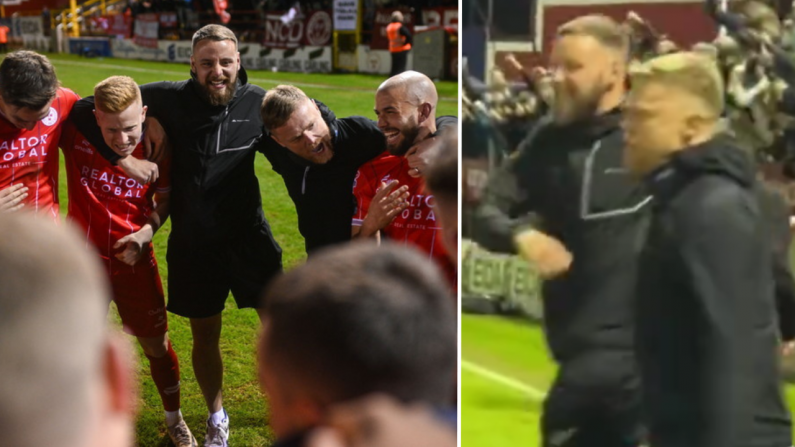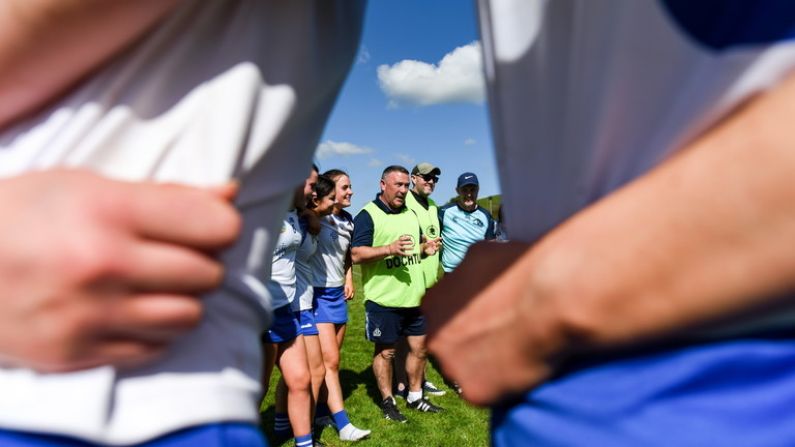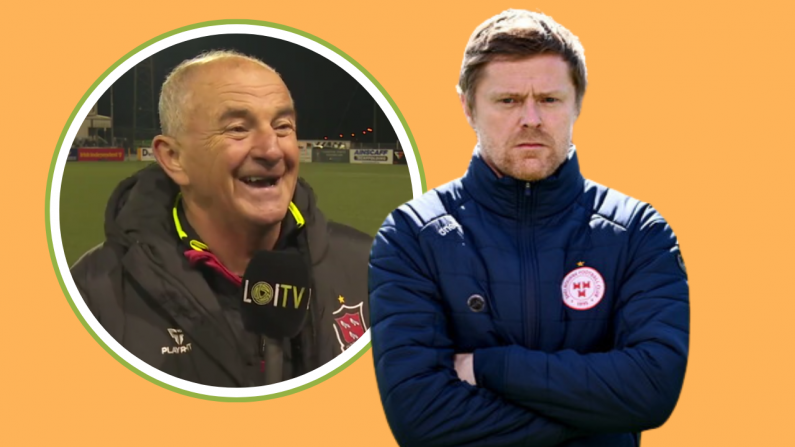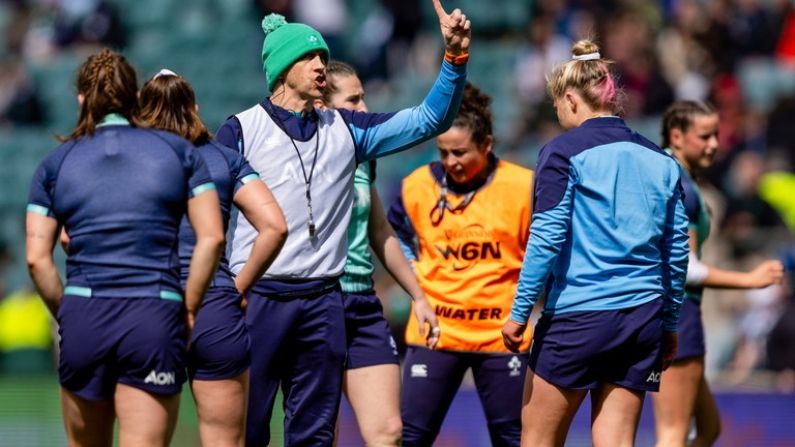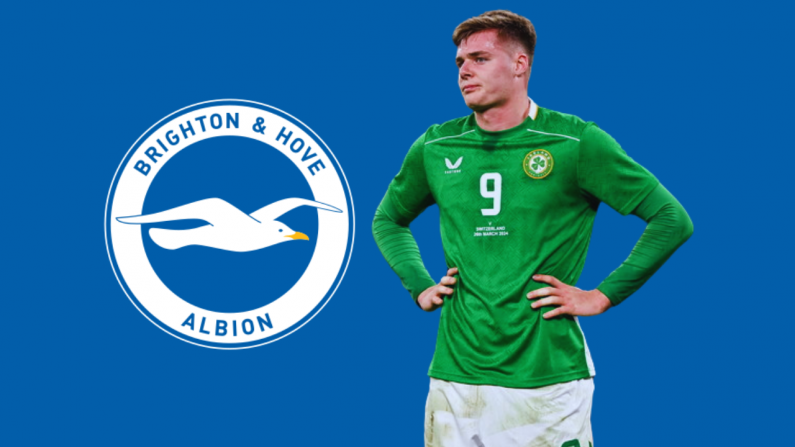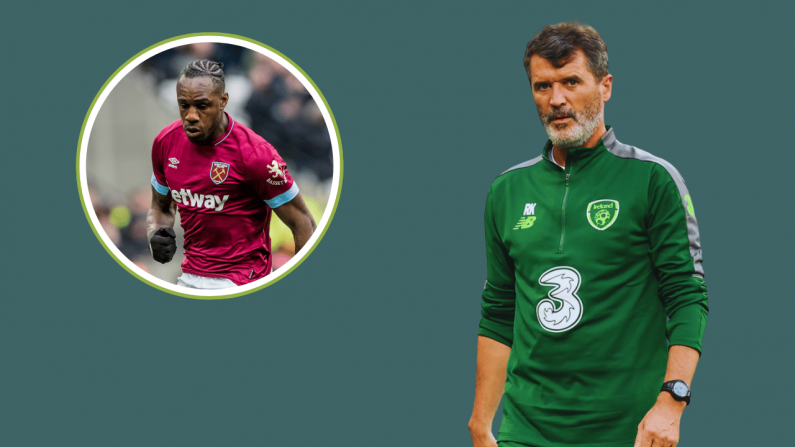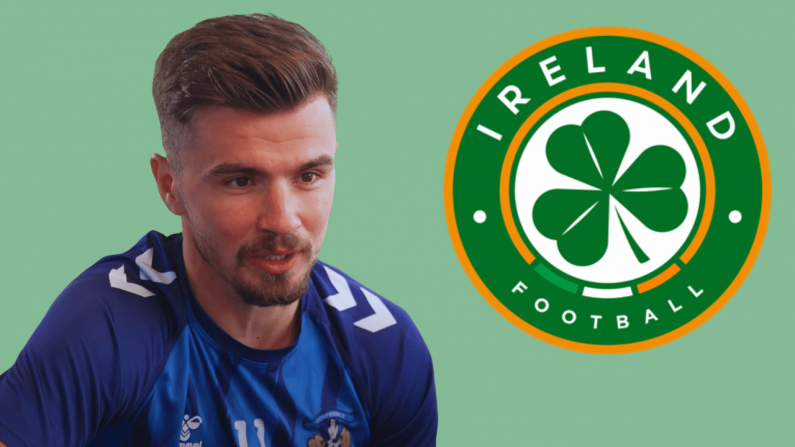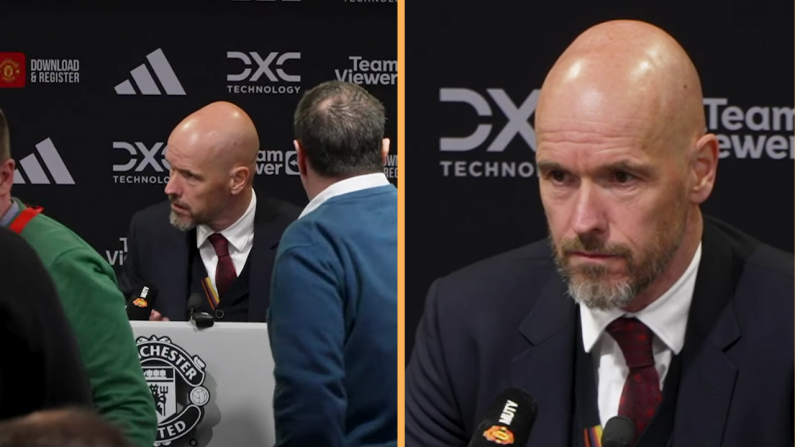Sean O'Connor's phone lit up with notifications following last year's All-Ireland football final. He's not a Dublin fan, it was not people congratulating him on the three-in-a-row. He's not a Mayo supporter, the messages were not ones of sympathy for once again having fallen again at the final hurdle. Not even in the country at the time, O'Connor had a different interest in the game.
As Dean Rock stepped up to take what would be the decisive kick, Lee Keegan lobbed an object in the Dublin forward's direction in desperate hope of causing sufficient distraction. Dublin's party in full swing, it was realised what Keegan had used in an attempt to spoil it.
Keegan had thrown a GPS tracker - one provided by O'Connor's company, STATSports.
Founded in 2008 by O'Connor and Alan Clarke - two lads from Dundalk - it has risen to become the world's leading GPS player tracking company.
"We initially thought we'd be going to the Irish market, to GAA teams and rugby teams here, amateur teams," O'Connor, the company's Chief Operations Officer, told Balls.
In the intervening decade, the business has stretched much further than this island. Look through the extensive client list on the STATSports website and you'll spot some of the biggest names in sport: Premier League teams like Manchester United, Manchester City, Liverpool and Arsenal; club and international rugby teams such as Ireland, England, France and all four of the Irish provinces; NFL teams like the Cincinnati Bengals, Oakland Raiders and Kansas City Chiefs; the NBA's New York Knicks, Memphis Grizzlies and Milwaukee Bucks are all there.
This summer's World Cup will be an exciting time for the company. In terms of Irish representation in Russia, it doesn't get more substantial than STATSports.
Eight to ten teams - including Brazil, Germany, Portugal, Belgium, England, Poland, Demark and Morocco will be using their full system - that's hardware and software.
At least six more will be using the software for different forms of analysis. In all, approximately half the teams at the tournament will be using technology developed by an Irish company. Teams' willingness to publicise their use of the technology varies.

"We'll have one or two staff with teams during the World Cup. Primarily, we would train up staff within the organisations to make sure they can use the system seamlessly."
Accuracy is STATSports' key weapon in the battle against others in the industry but they also hold advantages with their software and customer service.
The hardware, in the like-for-like challenge, we'll come out on top in terms of accuracy. It's streets ahead in terms of the accuracy in stadiums, in matches. That's really important if you're making decisions, you need to make sure that your data is correct.
The software has the capability to run on iPads, computers and even phone apps. You have to option to be standing with an iPad and getting the data coming through live and being able to make decisions, both in training and in matches.
The third one would be service. It would be a big part of what we'd try to drive with our customers, it isn't just about handing over our solution and turning our back on them. We give a turnkey solution where we can provide them with support, personnel and with upgrades and information as they grow and develop.
The way it works, with the vast majority of our technology we will lease it. What will do for the teams then is we take their feedback on board and constantly try to develop.
We're constantly trying to develop new exciting metrics and components within the software to keep giving teams that edge and keep evolving the system. Most teams on a service contract will get the benefit of that as we develop the system, they get the rewards.
In all, 50 metrics are calculated in real time by the APEX system. That is the tracker which players like Neymar, Toni Kroos, Cristiano Ronaldo, Harry Kane and others will wear over the next month.
Metrics include obvious ones such as speed and distance covered but also the number of sprints and impacts. 'Step balance' is a measurement which can be used to identify if a player is carrying an injury.
"If you and I were both running in a straight line, in theory - if we were running efficiently, uninjured and healthy - we should be putting the same amount of stress on our left side as we do on our right side.
"Often with elite athletes, it can just take a slight little change, a tight hamstring or something like that which can cause you to adapt your running style or adapt how you're covering the ground.
"Sometimes that's not noticeable by eye. So our device, because of where it is and the high-resolution data that we can capture, we can see if someone's gone from 50/50 running biomechanics to maybe putting a bit more stress on the left side than the right.
"These are often telltale signs that allow staff to make decisions ahead of time and modify and adapt to get the most from the player."
https://www.youtube.com/watch?time_continue=13&v=z0zjB7of1aE
Examples as to how the technology has benefited teams are given without naming names but are still intriguing.
Prior to becoming clients, two teams were doing what they considered to be light training sessions on the day before games. It quickly became clear that for some, they were exerting themselves more physically in those sessions than they were on the day of the game.
We had a player who we were able to detect was doing more than every player in every analysis every day. What it was, he was going to practice free kicks and he ended up taking four or five balls and hitting free kicks, run and get them, run back.
That might total to an extra kilometre, kilometre-and-a-half every session. If you do that over a week, over a month, it really starts to build-up.
Take more footballs, put a limit on it or send one of the youth academy players to come and get the footballs for you. You can still try to practice the free kicks but cut out the distance in between.
If you've never heard of STATSports, that's mostly been of their own making. For a company which has seen remarkable success over the decade of its existence and rapid growth in the past year, they've been shy about letting people know.
They should have been shouting from the rooftops but instead allowed quiet conversations within the industry to aid growth. Though, that is an approach they want to change. You may have noticed their name and logo on the back of the Dundalk jersey in this year's League of Ireland.
STATSports' birth occurred in a fitting setting: the sideline of a football pitch. It was there O'Connor and Clarke - they had moved in similar circles - had a conversation which was the moment of the company's inception.
O'Connor, who hails from Bellurgan just outside Dundalk, has a background in sports science and studied in Cardiff and Sheffield. He played football underage with Dundalk but never made to senior level. Alan O'Hare who would move to Bolton and have a decent career with Chesterfield was one of his contemporaries.
Clarke has a background in engineering and spent much of the 90s working in the music industry.
Initially, they offered a rounded sports science service.
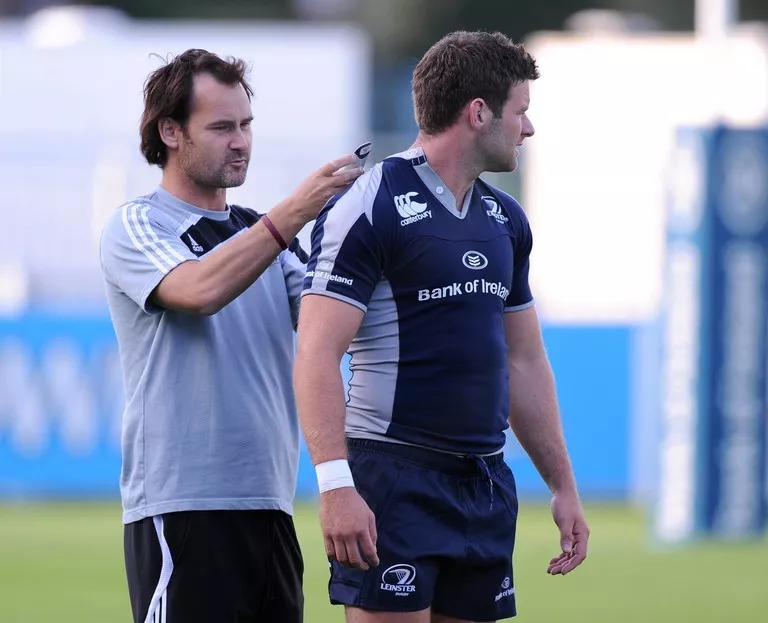
"Going back to 2008, 2009, Leinster and Irish rugby were probably two of our first clients at that time.
"Myself and Alan probably did everything: from going to the Leinster rugby sessions, Ireland rugby sessions to going after new leads and new markets. The two of us really did start from scratch.
"We were able to offer a solution where the expense of buying the equipment wasn't on the team, it would be on us and then we could supply this equipment to the teams for a service fee."
At the time, the two didn't realise how progressive their service was. Premier League teams quickly got in touch to ask for advice.
When you go to the very top level of the industry, it's quite a small area in a sense; we were working with one Premier League team and someone said, 'A good friend of mine works at another team and they were about to go and use a different system but I spoke to him and he's expecting your call'. There are quite a small number of people at the elite end of this. Getting involved with and getting in with some of the bigger names opened doors for us.
There was never a moment that felt like a big break because it was of these things - it was a stepping stone to the next one to the next one and you're always looking to what we can do on the back of this as opposed to standing back and having a sigh of relief and saying, 'Oh that's a big break'. It was always about the next thing.
Through the Irish rugby team we started working with English rugby. We started working with Manchester United and Arsenal around the same time and then Liverpool soon followed and Manchester City. We've been fortunate enough to work some of the biggest names in world sport for a number of years.
2012 was a landmark year for the company. The Viper pod - their own technology - was launched. Player monitoring had been identified as the sector where their focus should be concentrated. They were no longer a utility back flitting between centre and wing - a regular spot on the team had been nailed down. Five years on, the APEX Team Series GPS device reached the market.
The world's best footballers have been availing of the technology for years, nearly every Premier League team is now on the client list.
"I think we've got a couple of the teams coming up this year, as well. We do work with quite a big chunk of the Premier League.
"It's great, we're fortunate that we get to see different applications, different coaching methods that people do. You would assume that everybody is doing the same thing, that everybody is working in the same general areas but you'd be surprised the changes that you can get from one club to the next."
2018 saw the inking of two major deals. (One or two more are in the pipeline but their announcements are not yet ready.) In March, a deal worth €1.14 billion was announced with US Soccer - the biggest contract to ever be signed in the industry. That was followed shortly by one with the Brazil Football Confederation.

"They essentially got in touch and said, 'We've seen your system and would like to get a proper look at it'. Once they'd seen it first hand, they said, 'We need to change to this right away'.
"To come to us in such a short window before the World Cup, you wouldn't expect teams to change so close to a tournament.
"Brazil and football are synonymous. It's great to be working with them. They're keen to promote and talk about what we're doing. They want to be out front and centre talking about how they're using it and applying it - that's been great.
"In fact, a team of similar scale and size has come even more recently. We just can't chat about it. They wanted to use our technology pre-World Cup as well."
A business which started with two men playing multiple roles now has squad depth - there are at least 70 employees. Their headquarters are in Newry but there also offices in Chicago and Florida. Staff are also working in the growing South American market.
It's a time of rapid expansion - the software team has tripled its number in the past 18 months. Clarke is the CEO while O'Connor, in his position as COO, is looking for leads in the US and beyond.
In the territory game, a consumer product which launches next month will be an O'Gara-esque kick to the corner.
Devices are already available which provide basic stats to the average footballer, hurler and rugby player but this will give them the type of data their inter-county and professional counterparts have at their disposal.
"It's taking performance analysis and making it available to the mainstream," says O'Connor. A dive into the mainstream should be a lucrative one and could grant them the household name they've been so coy about courting.
Consolidating the elite market is another key ambition. That will be achieved by continuing to do what they do best - provide a great service, listen to the feedback and make their product even better.
We're adding more features in different areas. By no means are you at the top of the mountain at any point. Depending on who asks, we're a tech company, we're a sports science company, a data company.
What we need to do is keep evolving - from a sports science perspective, what we offer the teams; to be able to keep growing with them and meet their challenges.
There are huge, vast areas within world sport that as of yet remain untapped - we're not fulfilling the potential that we see. Leagues in Europe, within the UK, America is a big spot for us and even Australia.
Our system or any system, it's only as good as the people using it, the staff and structure within clubs. We'll never claim that we're going to go into a club and revolutionise everything they do.
What performance analysis is and the area we're in can do is give them another tool to help them make good informed decisions. That's where we want to be - to provide solid information that people can act on and have a positive effect on the team.
In elite sports right now, there is no better data than STATSports data.



